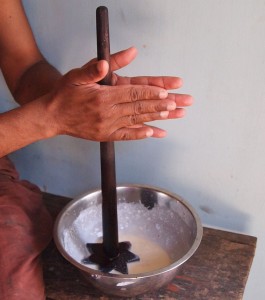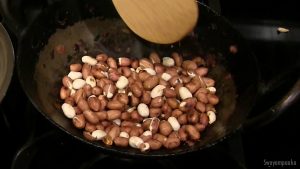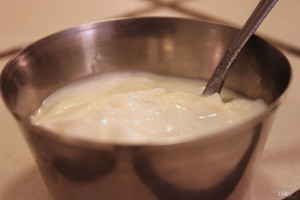Most of us are familiar with the word “antibiotic” since the family doctor would have prescribed it for a cold, cough or fever. However, the word “probiotic”, I assume, is not as popular among many. An antibiotic is a chemical agent that kills bacteria, but probiotic is a live microorganism when consumed in adequate amounts, provides a health benefit on the host. In order to maintain our digestion process in good nick, we need an optimum population of these helpful microbes in our gut. Indeed, when your gut flora is disturbed, you can suffer from a horde of gastrointestinal problems like indigestion, diarrhoea, constipation, irritable bowel syndrome, lactose intolerance and the like. Therefore, we need to supplement our diet occasionally with these probiotics. Sensing a huge business opportunity here, some multinational firms have begun to market commercially made probiotics such as drinkable yogurts for which the demand is ever increasing in many countries.
In this context, it may be useful to learn some facts about buttermilk which is frequently referred to as “Grandma’s probiotic”. In many parts of the Indian subcontinent, buttermilk was being used as an essential ingredient in daily food since ages. In some festivals, especially during summer, buttermilk mixed with water, sugar and/or salt, asafoetida and curry leaves is served to visitors as thirst quencher. Buttermilk made at home in the traditional way was found to be highly beneficial to health as it contains probiotic microbes.
Buttermilk, a product of naturally fermented milk, is the liquid left over after removing the fat in the form of butter from churned curd or yogurt tasting slightly acidic and sour in flavor. Traditionally, buttermilk is consumed mixed with rice at the end of the meal in Southern Indian households even today as per the popular saying in Sanskrit “Takraante bhojanam” meaning that a meal should necessarily end with buttermilk. This traditional knowledge handed down to us from generations appears to rest on a sound footing since the lactic acid in buttermilk is very effective in washing down the fat, oil or ghee that normally sticks to the inner walls of our food pipe and stomach – thus possibly preventing alimentary canal infections and giving us a feeling of lightness in the stomach. Regular intake of buttermilk aids in killing germs and bacteria helps clear the stomach contents and assists in digestion as well.
In summer, drinking a large glass of buttermilk offers the simplest and surest way to overcome dehydration as it contains electrolytes like, potassium, calcium, and traces of phosphorus and water. For vegetarians, buttermilk is the best source of Vitamin B12 helping to fight anaemia and stress. Drinking butter milk after a hot and spice-rich meal helps to wash down the spices and is regarded as the best remedy to calm down an irritated stomach lining. Buttermilk is the best antidote for persons complaining of acidity.
For those intolerant to lactose in milk, buttermilk is an excellent substitute for providing calcium which is so essential for bone growth. What’s more, buttermilk has properties to lower cholesterol in the blood when taken regularly, besides having antiviral, antibacterial, and anticancer action. Well, these are but a few qualities of buttermilk which could do you a world of good in the long run. So, why not begin today making your own buttermilk or yogurt at home and enjoy its benefits for a lifetime.



